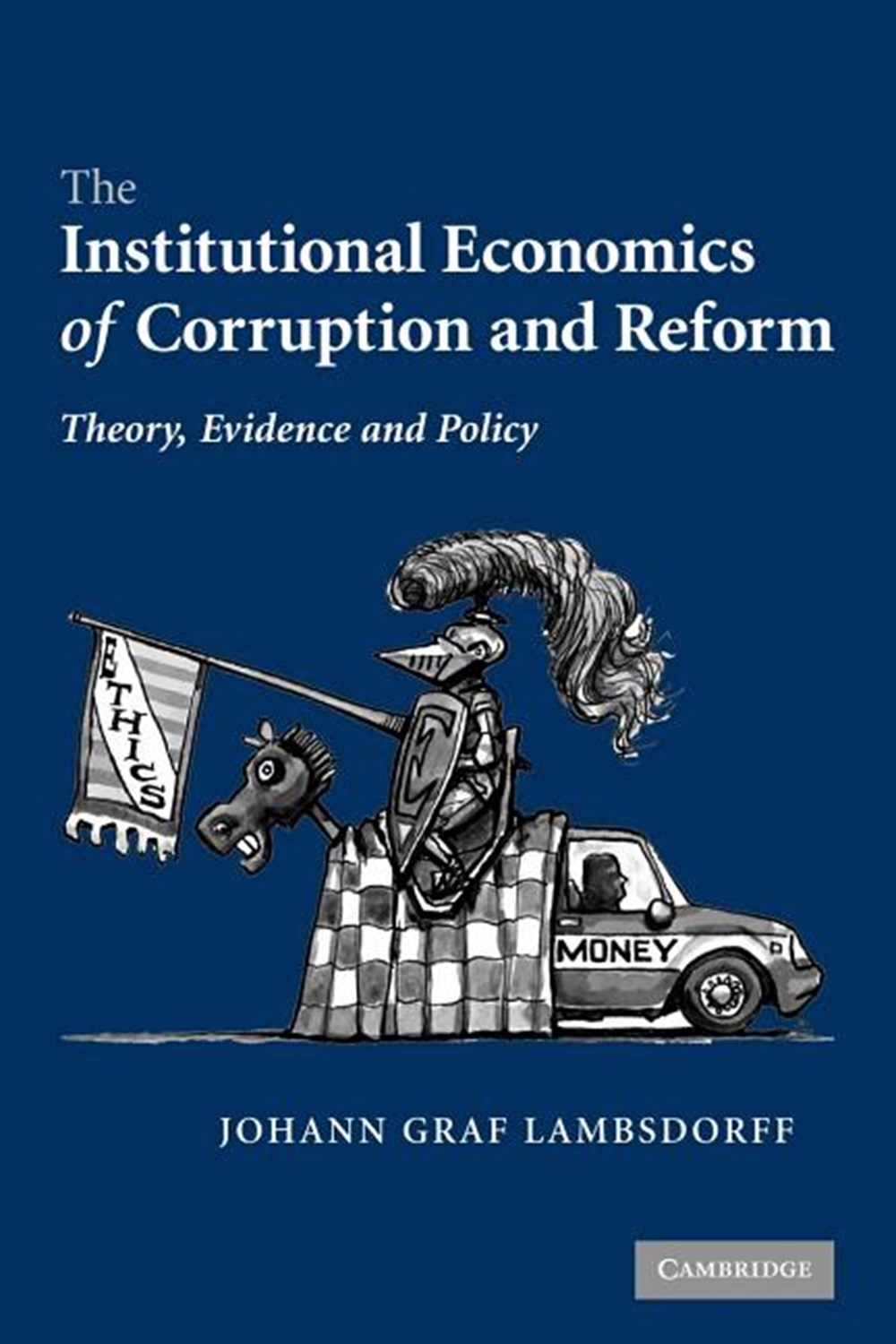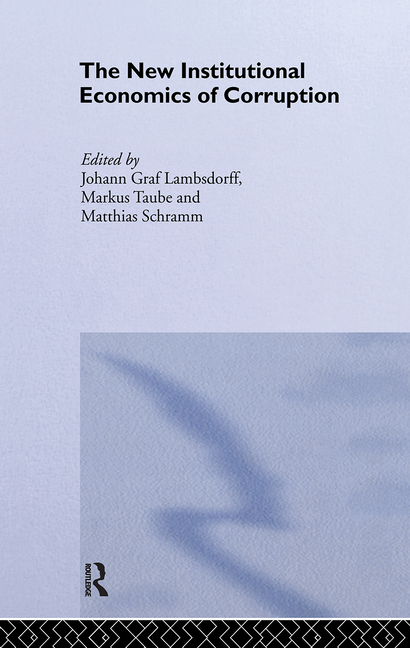
The Institutional Economics of Corruption and Reform: Theory, Evidence and Policy
Corruption has been a feature of public institutions for centuries yet only relatively recently has it been made the subject of sustained scientific analysis. Lambsdorff shows how insights from institutional economics can be used to develop a better understanding of why corruption occurs and the best policies to combat it.
| Quantity | Price | Discount |
|---|---|---|
| List Price | $50.99 |
Non-returnable discount pricing
$50.99
Book Information
| Publisher: | Cambridge University Press |
|---|---|
| Publish Date: | 07/10/2008 |
| Pages: | 304 |
| ISBN-13: | 9780521068673 |
| ISBN-10: | 0521068673 |
| Language: | English |
Full Description
Corruption has been a feature of public institutions for centuries yet only relatively recently has it been made the subject of sustained scientific analysis. Lambsdorff shows how insights from institutional economics can be used to develop a better understanding of why corruption occurs and the best policies to combat it. He argues that rather than being deterred by penalties, corrupt actors are more influenced by other factors such as the opportunism of their criminal counterparts and the danger of acquiring an unreliable reputation. This suggests a novel strategy for fighting corruption similar to the invisible hand that governs competitive markets. This strategy - the 'invisible foot' - shows that the unreliability of corrupt counterparts induces honesty and good governance even in the absence of good intentions. Combining theoretical research with state-of-the-art empirical investigations, this book will be an invaluable resource for researchers and policy-makers concerned with anti-corruption reform.


